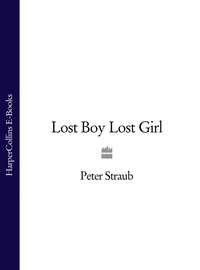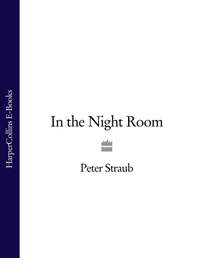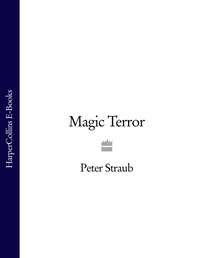
Полная версия
Mr. X
The girl buries her face in her mother’s chest, and the mother hoists her up. She is as pretty as a movie star. ‘I want you to get out of here right now, whoever you are,’ she says.
Concealing the knife in the folds of his coat, he moves along the bottom of the bed. She backs against the wall and shouts, ‘Mike!’
‘No help from that quarter, Mrs Anscombe,’ he says. ‘Tell me, don’t you find it awfully dull out here in the sticks?’
‘My name isn’t Anscombe,’ she says. ‘I don’t know anyone named Anscombe. You’re making a terrible mistake.’
He comes toward her. ‘Someone did, anyhow.’
She springs onto the bed. Her legs churn. Mr X wraps a hand around her ankle. The nightdress slides up over her hips when he pulls her toward him. She releases the little girl and shouts, ‘Run, baby! Run outside and hide!’
He yanks the woman off the bed and kicks her in the stomach. The little girl stares at him. He flicks a hand at her, and she shuffles an inch forward on her knees. ‘Too cold outside for a nice baby,’ he says. ‘Dangerous. Baby might meet a big, bad bear.’
The woman struggles to her feet and stands with her hands pressed against her stomach. Her eyes are like water. ‘Run, Lisa!’ she hisses. ‘Run away!’
He waves the knife at the woman, playfully. His teeth glint. ‘Baby Lisa doesn’t like bears,’ he says. ‘Does she, Lisa?’
Baby Lisa shakes her head.
‘Do anything you like to me,’ the woman says. ‘Just don’t hurt my baby. No matter who you are, she doesn’t have anything to do with why you’re here. Please.’
‘Oh,’ he says with what sounds like real curiosity, ‘why am I here?’
She leaps toward him, and he whirls out of her path and knocks her to the floor. He bends down, grabs her hair, hauls her to her feet, and throws her back against the wall. ‘Was there an answer to that question?’ he asks.
Then the terrible thing happens again. A giant hand seizes me and rips me from my body. I am nothing but a shadow-space that looks out through his eyes. In panic and terror I fight to escape but cannot. This always happened. The clamps knew me, they held me in a knowing accommodation. Through his eyes I see more than I can through my own – it’s true, she is almost as pretty as a movie star, but her face, chipped by too much experience, would look bitter on the screen. An unhappy knowledge moves into her eyes.
She says, ‘So I guess this is what happened to the Bookers.’
I gather and flex myself, and the restraints drop away. With no transition, I am back in my body, looking across the bed where the baby named Lisa kneels on the covers.
‘Should I know that name?’ asks Mr X. ‘By the way, isn’t there a little boy in the Anscombe family?’
‘He’s gone,’ she says.
He says nothing.
‘I don’t know where,’ she says. ‘You don’t have to hurt my baby.’
‘I wouldn’t hurt an innocent child.’ He summons the girl. She creeps across the blanket, and he scoops her up. ‘But I often wonder why the very people who should know better think that this is a benign universe.’ He anchors the child in the crook of his elbow, grips the top of her head, and twists. There is an audible snap and the child sags.
I don’t want to go on, it’s all wrong anyhow, I kept mixing up the details because the actual memory was too painful. That time, the name wasn’t Anscombe. Anscombe came in later.
8 Mr X
It took me an absurdly long time to understand who and what I was. You, my Masters, had it easy by comparison, and I beg You to understand the nature of my struggle.
Until I reached that cataclysm known as adolescence, my impersonation of an ordinary child met with passable success. That in the course of a schoolyard brawl I was sufficiently provoked by a fellow second-grader named Lenny Beech as to batter his blond head against the cement was put down to his remark that I was a piece of dog poo-poo. That I was obliged to repeat the third grade was explained by what the administration described as my ‘daydreaming,’ my ‘inability to pay attention during class,’ and the like, a reference to my habit of completing assignments any old way I felt like, so that when asked to write about My Favorite Christmas I might hand in a page filled with question marks, or in answer to a sheet of subtraction problems, submit a drawing of a monster eating a dog. The word creative came in handy, although it failed to appease the parents of Maureen Orth, a scrawny nonentity with overlapping front teeth whom I talked into letting me strip naked and tie to a birch tree in Johnson’s Woods when we were in the eighth grade. Maureen had been grateful for my attentions until I reminded her that wild Indians, one of which I was pretending to be, customarily tortured their captives, one of which she was pretending to be. The pathetic screams induced by the sight of my penknife led me to untie her, and she would not listen to my avowals that I never intended to cause her any actual harm.
In the end, my father wrote Mr Orth a check for a thousand dollars, and that was that, apart from the grumbling.
My father cut my allowance in half, ‘for,’ as he put it, ‘encouraging that creature’s attentions,’ and my mother wiped her eyes and forbade me ever again to go into Johnson’s Woods.
Of course I had no intention of obeying. Thirty acres so thick with pines, birches, maples, and hickory that sunlight pierced their canopy only in shimmering, coin-shaped spangles and containing, like an emerald hidden in a bowl of pennies, the mysterious ruins into which I would have dragged Maureen Orth had she been up to snuff, Johnson’s Woods was sacred ground to me.
All that was left of property which otherwise had been transformed into streets lined with houses for the people my father called ‘the rising scum,’ the woods were mine not because they belonged to my family, but because they had spoken to me the first time I really looked at them.
I must have been transported past Johnson’s Woods hundreds of times before I looked through the rear window of the bus delivering Edgerton Academy’s sixth grade to Pioneer Village and felt a fishhook strike my heart as a voice out there or inside my head boomed Come to me. Words of that order. You need me, You are mine, Be with me, whatever. The fishhook tried to pull me through the window, and I turned around and pushed against the glass. My heart pounded, my face blazed. The driver yelled an order to sit down. In justifiable expectation of fireworks, my classmates snickered, but fell silent as soon as I obeyed. The astonished teacher thanked me for my cooperation. I wasn’t being cooperative. I wasn’t strong enough to push out the window.
Pioneer Village was two streets lined with log cabins and the Meeting House, the Place of Worship, the Trading Post, and the Smithy. Women in frilly caps cooked in big pots hung over fireplaces, and men in coonskin caps and gunnysack shirts shot rabbits with muskets. These people grew vegetables and made their own soap. Their hair was stiff with grease, and nobody looked too clean. I believe they were adepts of some punitive faith.
Rendering unto Caesar what was Caesar’s, I stumbled through the day and got back on the bus ahead of everybody else. When we passed the woods on the way home, I twisted sideways on my seat and waited for that tug at my inmost being and the booming voice I alone would hear. Instead, I felt only a warm, powerful pulsation – it was enough.
Blessedly, the next day was Saturday. I arose with the sun and idled around the house until my mother appeared to make breakfast. My father took off on a business errand, which was what he did on Saturdays. With premature cunning, I told my mother that I thought I’d ride my bike for a while. On my usual Saturdays, I wandered down Manor Street in a black, bored rage, scratching the sides of our neighbors’ cars and crouching under a bush to shoot passing dogs with my BB gun. That I wanted to do something as conventional as ride my bike filled my mother with a pleasure tainted only mildly with suspicion. I promised not to get into trouble. Because I had no choice, I also promised to come home for lunch. I could see her consider giving me a hug, and, to our mutual relief, veto the notion. I pedaled down the driveway in a flawless impersonation of a kid with nothing special on his mind. The second I got out of sight, I stood up on the pedals and made that clunker fly.
At the place in the road where I had felt the tug and heard the wondrous voice, I dragged the bike behind a tree and stood up straight, knowing I was in the right place, the place I was supposed to be. I stepped forward, trembling with anticipation. Nothing happened. In a manner of speaking. Nothing happened except for the subtly intensifying awareness of having arrived within that space in the world most connected to the secret sources of all that made my life a furious misery, therefore the space most necessary to me and for the same reasons the most terrifying.
At that moment, I realized that I had already chosen knowledge over ignorance, whatever the consequences. My heart calmed, and I began to take in what was around me.
The trunks of many trees filled my vision, brown, gray, silver, some almost black, their hides varied from wrinkled corrugations to perfect shining smoothness. Trembling pools of light lay across the gray-green floor. The air was a floating, silvery gray. Far off loomed the wooden mountain of a deadfall. Overhead, leafy crowns knitted together, and squirrels’ nests sat on upper branches like ragged bolls.
Then, as if they had come into being all at once, I could see the squirrels everywhere, leaping from branches, landing on twiggy shoots, and swaying downward to rocket up again in an endless chase. Birds of all descriptions crisscrossed the gauzy air. A fox materialized within a cube of empty air, pricked up its ears, and stopped moving with one paw still raised.
On the last Sunday before summer vacation, when coincidentally or not Canon Reed had spent the morning vainly attempting to take the sting out of Luke 12:49, I came to cast fire upon the earth, and would have it that it were already kindled!, I saw the first faint traces of the blue fire and knew that the summer would be a time of wonders.
Intermittent, vertical strips of pale green appeared and coalesced between the more distant trees. When I came nearer, I saw that I was approaching a clearing. I reached the last of the trees. Before me was a grassy oval, unnervingly quiet. Unobstructed sun beat down upon a pad of yellow-green grasses.
As soon as I moved out from beneath the canopy, the temperature heated up but good. I could hardly see, in all that brightness. At the center of the clearing, I sat down with my eyes just above the top of the grass. A flattened trail arrowed toward me. I wiped my forehead and blinked against the dazzle of the sun. When I breathed in, the clearing breathed with me. An electric current ran up my arms and into my chest.
I knew awe and pleasure. I knew more was to come. Within the me within the clearing sat a me who needed time to get used to his surroundings. We sat together in our different realms and adjusted to our new conditions. There would be more, but the nature of the more could not as yet be imagined.
A bluebird ventured out of the woods, and I tracked its arrogant, overhead loop.
Within, my newborn self spoke, and I sent a thought flying to the bluebird. As quick as anything, that bluebird crumpled its wings and fell, lifeless as an anvil.
On the way home, I tried to do the same to a crow sneering at me from a telephone wire, but the blasted thing refused to drop dead. So did a holstein ruminating behind a fence at the edge of the road, and I had no better luck with Sarge, an elderly police dog twitching in sleep on his owner’s front lawn. I had been given a tool that had come without an instruction manual. Thinking as a child, I assumed that installments of the instruction manual were to be steadily delivered over a reasonable time.
Little did I know.
9
Because my board scores were surprisingly good, I wound up being accepted by all four of the colleges I applied to. As a product of foster care whose only legal parent made so little money she had never even filed with the IRS, I was offered full-tuition scholarships, free housing, and a variety of jobs at each school, so I did not have to count on Phil Grant to lay out the customary fortune. He would have refinanced his house and taken out loans to keep him in debt until retirement, if that was what I needed. That I would not be costing Phil a lot of money made me happy, but most of my happiness was relief.
In the end, I decided on Middlemount, disappointing Phil, who had all but assumed since my acceptance at Princeton, his alma mater, that I would wind up there. I couldn’t see myself at such a high-pressure school, and I didn’t like the idea of being surrounded by a lot of rich kids. Also, although I never mentioned it during our talks over the kitchen table, I knew that in spite of all the financial aid, Princeton would take more money out of Phil’s pocket than Middlemount. On the sensible grounds that we were talking about my decision, not his, Laura took my side in these discussions, which helped him come around. So I went to Middlemount College in Middlemount, Vermont, and my life began to unravel.
When my jock roommate followed his instantaneous loathing of everything I represented by crowding great numbers of his prepschool chums into our room night after night to yell about fags, niggers, kikes, car wrecks, sailing catastrophes, broken backs, broken necks, instances of total paralysis, kikes, fags, spics, and niggers, I complained loudly enough to get reassigned to a single room.
Once I got a single room I hardly saw anyone at all outside of classes. In spite of my SAT scores, my math and science courses seemed to be conducted in a foreign language. I had to struggle up to and past exhaustion just to lag behind. Sometimes I looked up from my desk at a string of gibberish Professor Flagship, the calculus teacher, was scrolling across the blackboard and felt myself fall through a hole in the earth’s crust. I spent whole weeks doing nothing but shuttling between the dorm, classrooms, my meal job, and the library. Then it started to get cold.
Winter hit Vermont right after Thanksgiving. The temperature sank to twenty degrees, and the cold gripped my skin like a claw. When it went down to ten degrees, the wind rolling down out of the mountains threatened to tear off my face. In the overheated classrooms, I could feel the cold moving into the marrow of my bones. For two months, the sun retreated behind a lead-lined curtain the color of gray flannel. Before long, starless night clamped down abruptly at 5:00. The worst cold of my life brought on perpetual sneezing and coughing and sent aches to every part of my body. I trudged to classes, but the supervisor at my meal job declared me a health hazard and granted sick leave. After forcing down whatever I could of the cafeteria’s starchy dinners, too tired to face another Nanook-style trek across the tundra to the library, I fell asleep at my desk while trying to cram Introductory Calculus into my stupefied head. Daily, second by second, I was being ersased into a shadow.
The one thing that kept me from feeling as though I already had become a shadow was my guitar and what happened when I played it. For my twelfth birthday, which had not failed to be marked by the usual horror show, the Grants had given me a nice old Gibson, along with what turned out to be years of lessons from a sympathetic teacher. I brought my guitar with me to Middlemount, and now and then when my room closed in around me, I went to a corner of the dorm’s lounge and played there.
Mostly, I added voicings to harmonies in my dogged, step-by-step way, but sometimes other students came in and sat close enough to listen. When I found that I had an audience, I played things like a Bach fugue my teacher had transcribed, a blues line I learned off a Gene Ammons record, and a version of ‘Things Ain’t What They Used to Be’ cribbed from Jim Hall. If anyone was still listening, I threw in a few songs whose chord changes I could remember. ‘My Romance’ was one, and ‘Easy Living,’ ‘Moonlight in Vermont,’ and a jazz tune called ‘Whisper Not.’ I made mistakes and got lost, but none of my fellow dormies knew anything was wrong unless I stopped and went back to where I’d been before my fingers turned into Popsicle sticks. Half of them never listened to anything but the Rolling Stones, Eric Clapton, and Tina Turner, and the other half never listened to anything but the Carpenters, the Bee Gees, and Elton John. (The ones that always wore black and listened to Bob Dylan and Leonard Cohen avoided the lounge like the plague.) What I played sounded like classical music to most of them, but they liked it anyhow. And I liked playing for them, because it reminded me that I had not always been a hermit. The other happy result of my playing was the renovation of my public identity from That Weird Ned Guy Who Never Comes Out of His Room to That Freaky Ned Who Can Play Really Good Guitar Once He Gets Out of His Room.
At Christmas break, I went back to Naperville and acted as though everything was fine, apart from some trouble with calculus. Without telling any actual lies, I described a challenging routine of work and occasional pleasures, and put down my unhappiness to homesickness. As soon as I said the word, I realized that I had been more homesick for Naperville and the Grants than I had been willing to admit. As my cold lessened and I alternated between writing a paper for English, reviewing notes for my final exams, and settling back into my old place in the household, the version of college life I had invented began to seem less fictional and more like the reality I would have known had I not felt so lost.
The day after Christmas, I heard a car turn into the driveway and went to the living room window to watch Star wheel up to the garage in a handsome old Lincoln. She emerged wearing high heels, an elaborate hat, and a black coat too light for the cold. Star was living in Cleveland that year, exchanging work at a lithography studio for lessons from an artist she had met while he was in residence at Albertus. On weekends, she was singing in a club called Inside the Outside. Laura Grant called out from the kitchen, ‘Ned, your mother’s here!’ Buttoning his blazer and sucking in his tummy, Phil came out of the alcove off the living room, where he watched television. ‘Don’t make her freeze out there, kiddo,’ he said. Star was hurrying up the flagstone path, and when I opened the door she sailed in like a swan, hiding her nervousness behind a brilliant smile. She put her arms around me, and the Grants both started talking at once, and I could feel her begin to calm down.
The rest of the day was comfortable and relaxed. Star gave me a cashmere sweater, I gave her a boxed set of Billie Holiday reissues, and what she got from the Grants nicely balanced the few little things she had brought for them. Laura prepared two lavish meals, and I continued to develop my sanitized version of life at Middlemount. Phil and Laura left us alone after dinner, and Star asked, ‘Are you thinking about being a musician? I sure liked hearing about you playing for your friends at that school.’
I told her that I’d never be good enough to satisfy myself.
‘You could be better than you are now,’ she said, ‘and you’d be able to work, so you could leave college, if you wanted to. If any of the musicians I know have college degrees, they keep it a secret.’
Surprised, I asked her why I would want to leave college.
‘Know how you sound when you talk about Middlemount?’ she asked. ‘Like you’re describing a movie.’
‘It’s a good college.’
‘You don’t have to tell me it’s a good college. I just wonder if it’s a good college for Ned Dunstan. Look at you. You lost about fifteen, twenty pounds, and you’ve been missing way too much sleep. The only reason you’re halfway healthy is Laura’s been giving you plenty of her good food.’
‘I had a rotten cold,’ I said.
‘Your cold wasn’t all that was rotten, if you ask me. Maybe you want to make college sound better than it is.’
‘After I get through the finals, everything’ll be fine,’ I said. Phil and Laura came in offering coffee and nightcaps, and before everybody went to bed we listened to the eighteen-year-old Billie Holiday singing ‘When You’re Smiling’ and ‘Ooh Ooh Ooh, What a Little Moonlight Can Do.’
The next morning Laura and Star went out shopping, and Star came home with a new coat from Biegelman’s purchased at 60 percent off because Mr Biegelman thought it would never look as good on anyone else. As Laura told the story, she gave me a sideways look that was half question, half accusation. Star seemed to be avoiding looking at me altogether. Laura finished talking and my mother left to hang up the coat. She gave me a murky glance on her way out of the room. Phil noticed nothing, for which I was grateful. Laura said, ‘Did you boys stay home all the time we were out?’
‘You bet,’ Phil said. ‘We had a hell of a time kicking out the dancing girls before you got back.’
My mother drifted into the living room, smiled more in my direction than at me, and glanced at the couch like a cat deciding where to settle down. Phil cleared his throat and challenged her to their annual Christmas chess championship. She grinned at him with what looked to me like relief.
Before the start of this tradition, I would have said that given two tries at telling a pawn from a rook, my mother would have been right at least once, but she was good enough to beat Phil about one game in four. This time, he was frowning at the board and muttering, ‘Hold on, I don’t get it,’ ten minutes after they started. (It turned out that the lithographer in Cleveland was a demon chess player.)
I followed Laura into the kitchen, expecting her to share my amusement at her husband’s consternation. ‘Either she got a lot better since last year, or Phil forgot how to play,’ I said.
Laura moved across the kitchen, leaned against the sink, and permitted my remark to shrivel in the air between us. The look she gave me had nothing to do with amusement. ‘I thought I knew you pretty well, but now I’m beginning to wonder.’ She crossed her arms across her chest.
‘About what?’
‘Did you leave the house while we were gone?’
I shook my head.
‘You didn’t go downtown. Or to Biegelman’s.’
‘What’s all this about? You and Star have been acting weird ever since you got back.’
‘That’s not an answer.’ She was staring fiercely into my eyes.
‘No,’ I said, beginning to get irritated. ‘I didn’t go to Biegelman’s. Biegelman’s is a woman’s clothing store. I don’t think I’ve ever been inside it in my whole life.’ I made myself calm down. ‘What’s going on?’
‘A mistake, I guess,’ Laura said.
In the other room, my mother laughed and cried out, ‘Phil, don’t you know anything about Capablanca?’
‘He’s dead, and so am I,’ Phil said.
‘Star’s worried about you.’ Laura was still searching my face.
‘There’s nothing to worry about.’
‘Are you getting enough sleep? Do you walk around feeling exhausted all the time?’
Most of the time, I walked around feeling half-dead. ‘I’m tired sometimes, but it’s no big deal.’
‘Are you happy at Middlemount? If it’s getting to be too much for you, you can always take a semester off.’
I began to get angry all over again. ‘First everybody is pushing me into college, and now everybody wants to push me out. I wish you’d make up your minds.’
She looked stricken. ‘Ned, did we push you into college? Is that how it feels to you?’
I already regretted my words.
‘Think of how much those colleges wanted you. It’s a great opportunity. Besides that, not having a college degree would be a tremendous disadvantage later in life.’ She lifted her chin and looked away. ‘Boy oh boy. Maybe we did push you. But all we wanted was what we thought would be best for you.’ She looked back at me. ‘You’re the only person who can tell me what’s best for you, and you better be honest about it. Don’t worry about Phil, either. He feels the same way.’






